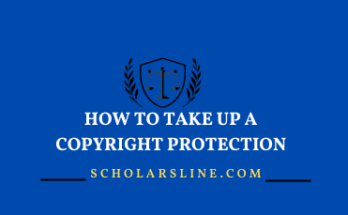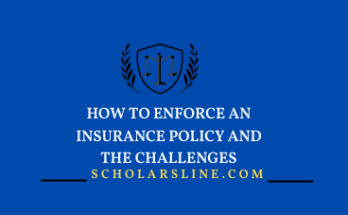How to Raise the Best Cross Examination Questions
Crafting effective cross-examination questions is crucial for presenting a compelling case in a trial or legal proceeding. Here are some key principles to consider when formulating cross-examination questions:
1. Prepare Thoroughly: Understand the case, the witness’s testimony, and all relevant evidence before crafting your questions. Thorough preparation allows you to anticipate the witness’s responses and weaknesses in their testimony.
2. Keep Questions Short and Simple: Cross-examination questions should be clear, concise, and focused. Avoid complex or compound questions that can confuse the witness or the jury.
3. Use Leading Questions: Leading questions suggest the desired answer and are effective in challenging the witness’s credibility or highlighting inconsistencies. For example, “You agree that you were at the scene of the crime on the night in question, correct?”
4. Establish Foundation: Lay the groundwork for your line of questioning by establishing the witness’s knowledge, credibility, and biases. Start with basic questions to build rapport before moving on to more challenging inquiries.
5. Stay Organized: Create a logical sequence for your questions to maintain coherence and maximize impact. Group related questions together to reinforce key points or expose contradictions in the witness’s testimony.
6. Listen Carefully: Pay close attention to the witness’s responses to adapt your questioning strategy accordingly. Follow up on inconsistencies or evasive answers to undermine the witness’s credibility.
7. Avoid Argumentative Tone: Maintain a professional and respectful demeanor during cross-examination. Avoid engaging in confrontational exchanges that may alienate the jury or undermine your credibility.
8. Use Exhibits and Documents: Present relevant exhibits, documents, or prior statements during cross-examination to challenge the witness’s testimony or corroborate your own arguments. Visual aids can enhance the effectiveness of your questioning.
9. Control the Witness: Maintain control over the witness by asking closed-ended questions that limit their ability to elaborate or provide context. This prevents the witness from straying off-topic or providing damaging testimony.
10. Reinforce Key Points: Use repetition to reinforce key points or admissions made by the witness. Emphasize inconsistencies or admissions that support your case to leave a lasting impression on the jury.
11. Maintain Focus: Keep your cross-examination focused on specific issues or elements of the case. Avoid wandering into irrelevant topics that may distract from your primary objectives.
12. Practice and Refine: Rehearse your cross-examination questions to ensure clarity, coherence, and effectiveness. Seek feedback from colleagues or mentors to refine your approach and improve your questioning technique.
By adhering to these principles and tailoring your questions to the unique circumstances of each case, you can effectively challenge witnesses, expose weaknesses in their testimony, and advance your client’s interests during cross-examination.
READ ALSO: How to secure the service of a Lawyer in United Kingdom
HOW TO RESPONSE TO CROSS EXAMINATION IN COURT TRIAL
Responding effectively to cross-examination questions is essential for maintaining credibility and supporting your position as a witness. Here are some strategies for handling cross-examination:
1. Listen Carefully: Pay close attention to each question being asked. This ensures that you understand the question fully before responding, helping you to provide accurate and relevant answers.
2. Stay Calm and Composed: Maintain a calm and composed demeanor throughout cross-examination, regardless of the tone or content of the questions. Avoid becoming defensive or argumentative, as this can undermine your credibility.
3. Answer Directly and Concisely: Respond to cross-examination questions with direct and concise answers. Avoid providing more information than necessary, as this can open the door for the opposing counsel to ask follow-up questions or challenge your testimony further.
4. Stick to the Facts: Base your responses on the facts of the case and your own personal knowledge and experience. Avoid speculating or offering opinions unless specifically asked to do so by the questioning attorney.
5. Be Honest and Transparent: Always tell the truth when responding to cross-examination questions. Avoid exaggerating or minimizing your responses, as this can damage your credibility and weaken your testimony.
6. Clarify Ambiguous Questions: If a question is unclear or ambiguous, politely ask for clarification before providing your response. This ensures that you understand the question fully and can provide an accurate answer.
7. Admit When You Don’t Know: If you do not know the answer to a cross-examination question, it is okay to admit it. Avoid guessing or speculating, as this can lead to inaccuracies in your testimony. Simply state that you do not know or do not recall the information being asked.
8. Be Mindful of Traps: Be aware of potential traps or leading questions designed to elicit damaging responses. Take your time in considering each question before responding, and avoid falling into the opposing counsel’s traps.
9. Remain Respectful: Maintain a respectful demeanor when responding to cross-examination questions, even if you disagree with the line of questioning or find it challenging. Avoid engaging in arguments or confrontations with the questioning attorney.
10. Consult with Your Attorney: If you are unsure how to respond to a cross-examination question or feel uncomfortable, consult with your attorney for guidance. Your attorney can provide support and advice to help you navigate challenging questioning effectively.
By following these strategies, you can respond to cross-examination questions confidently and effectively, supporting your testimony and credibility as a witness.
Thanks for going through this post; How to Raise the Best Cross Examination Questions




